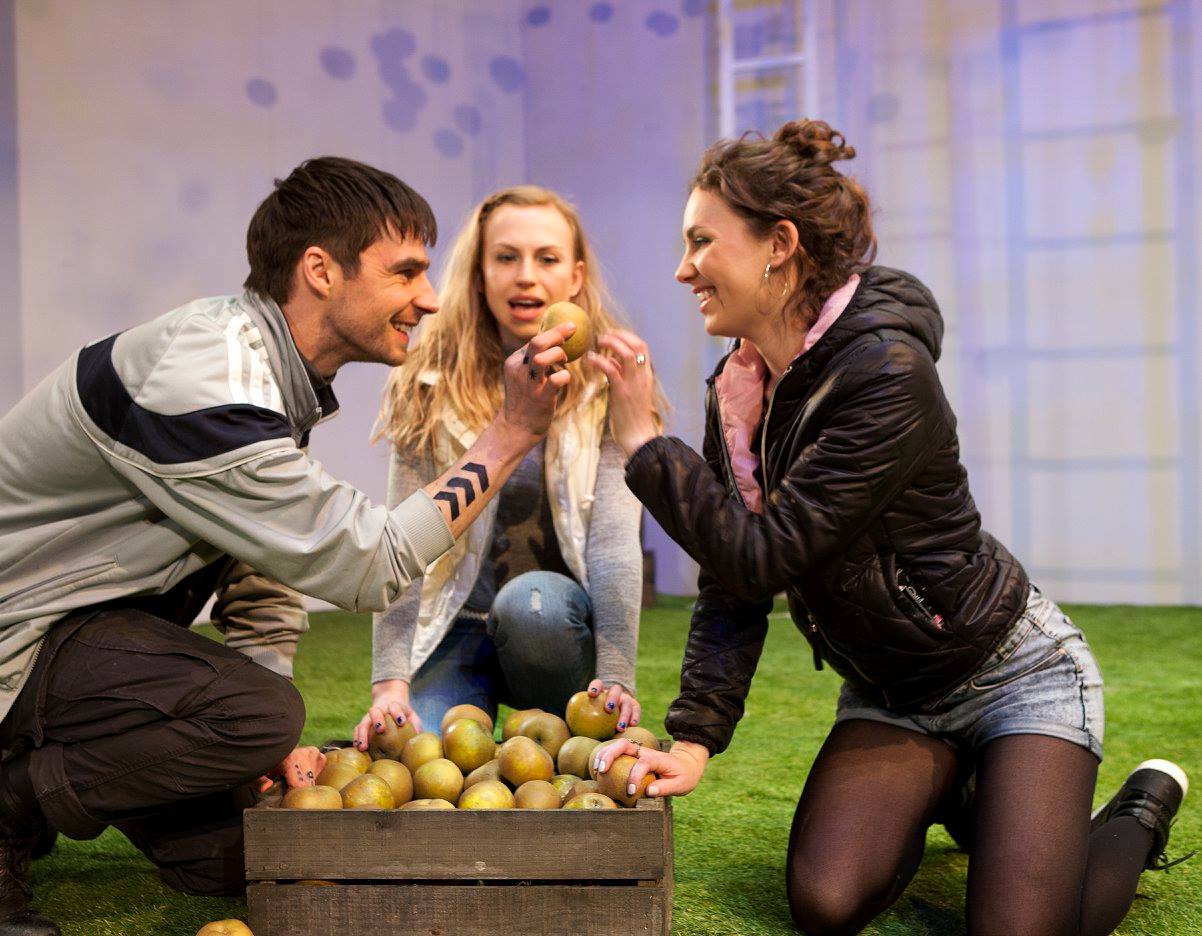 The question in my mind when leaving the Ustinov last night after an intriguing performance of Pavel Pryazhko’s The Harvest was, if you had to write an allegorical play about the UK without direct mention or reference to political figures or systems, what form would it take?
The question in my mind when leaving the Ustinov last night after an intriguing performance of Pavel Pryazhko’s The Harvest was, if you had to write an allegorical play about the UK without direct mention or reference to political figures or systems, what form would it take?
Pavel is a resident of Minsk, the capitol of Belarus, a country of nine million people bordered by Ukraine, Russia, Poland, Lithuania and Latvia. By the sounds of it he likes to keep his head down in a country noted for its old style authoritarian government led by President Alexander Lukashenko, in power for over twenty years and described as Europe’s last dictator. Political opponents have been known to ‘vanish’ or are ‘silenced’ and some, including the staff of the Belarus Free Theatre, have sought asylum in the UK. In a climate of censorship and repression Pavel has survived by dressing his critiques in simple farce, inviting the audience to spot the potent metaphors within a startlingly simple scenario.
At The Ustinov we are greeted by a stage festooned with multiple apples hanging from strings. From a very green AstroTurfed floor, white ladders ascend into the midst of the fruit. Birdsong can be heard. Into this ‘paradise’ step four young Belarusians ready to harvest the fruit. It starts simply. With happy smiling faces apples are picked and handed down carefully and arranged in waiting crates. But then, just a minute, wasn’t one apple put down too harshly? Couldn’t that end up rotting and taking the rest of the batch with it? Excruciating bungling ensues. The more they try to undo their original mistake (sin?), the more trouble they seem to get into. As crates are destroyed and apples end up splattered there are echoes of Laurel and Hardy slapstick here, but the superficial giggles induced are always a prompt to deeper questions about political breakdown and the cynicism and corruption of former systems, everything as metaphor.
With excellent direction from Michael Boyd, Lindsey Campbell, Dyfan Dwyfor, Beth Park and Dafydd Llyr Thomas do a great job of ramping up the angst in a consistently upward curve, despite having the flimsiest of scripts to work with. Along the way there will be silly nonsense, blood, aggression and overt sexism. And as the workers descend into physical and emotional chaos, darker references to ill health emerge and the soundscape turns to more of an industrialised hum. Paradise is being lost.
Like the Emperor’s New Clothes, Pavel’s play is, on the surface, see-through simple. Apples are picked and attempts are made to put them in crates for an hour. That we come out debating references to the disaster of nearby Chernobyl, the tightening influence of Russian power, and the destruction of an agricultural idyll, is testament to the way this Russian ‘New Drama’ can by suggestion alone make us work harder as an audience, and at the same time avoids dumping its writers in jail or worse. ★★★☆☆ Simon Bishop 17/03/15
Photo by Simon Annand

